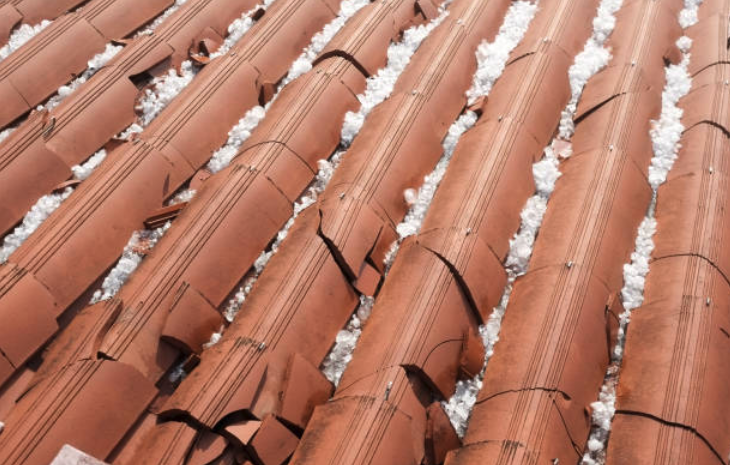We are right in the middle of Colorado’s hail season which runs from April 15 – September 15. Depending on the severity of a storm, hail can be either a minor event or cause significant damage. The National Weather Service states that hail causes about $1 billion in damage to crops and property each year. If you happen to experience a hail-producing storm, it’s important to know your insurance coverage and how to identify damage to your home so you can take steps toward remediation.
- Before you have an insurance claim, review your home insurance policy and look at your roof coverage. Be sure to specifically look closely for your wind/hail deductible.
- After a storm, inspect your home for hail damage. A home is designed to withstand normal weather patterns and elements. But, the exterior of your home can be significantly damaged by a hailstorm.
- Check your home’s exterior for damage, including checking for dimples or dents on roof and siding (a common form of hail damage).
- Check for leaks in the attic, and water damage on the ceilings.
- Inspect the ground for pieces of roof shingles. This may mean your roof has sustained damage.
- Visually inspect exterior exhaust fans, ducts and the area where your home’s siding meets the roof.
- If you suspect you may have roof damage due to hail storms, reach out to your agent (if you have one, not your insurance company) and have an independent roofing company or two assess for any damage. This is important, because if you file a claim with your insurance company and they send an adjuster out that determines you don’t need roof repair, it may count against you as a claim, which may affect your rate at renewal or when shopping for new insurance.
- If your home was damaged by hail, you should take action to repair it as soon as possible.
- Find a licensed contractor:While not all states require a contractor to have a license, if yours does, they should be able to provide you with a copy of it. Additionally, all contractors should be insured. Be sure to ask for a copy of their proof of insurance!
- Ask for references: Professional contractors should be able to provide a list of current references to contact. But, if your calls to the references continually get sent straight to voicemail, you may want to think twice before hiring the contractor.
- Don’t feel pressured into signing a contract:Never feel obligated to sign on the dotted line, especially if something feels off. You should also stop and read the fine print if a contractor asks you to sign an estimate, to make sure it’s not a binding contract. The Federal Trade Commission notes that a contract should include information like a start and completion date, repair costs and a list of materials that will be used. Look for this type of information when you’re ready to sign.
- Avoid cash or full up-front payments: If a contractor asks you for cash payments, or a full payment up front, that may be a warning sign
- Be wary of contractors who solicit door-to-door:Contractors who offer their services door-to-door after a storm (sometimes referred to as “storm chasers”) may really be offering you false work promises and will likely ask for cash up front. Support local and ask you agent or friends and neighbors for recommendations.
- Don’t be afraid to repair your roof if it is needed. While it may be a large project, if you have the right coverages it will be an easy and affordable process. Since hail/storms are an act of nature you should not be penalized on your insurance for this type of claim…In fact, your insurance premium will go down with a newer roof. One of our best discounts is on newer roofs. (We do not represent all companies and can only speak to Allstate)
